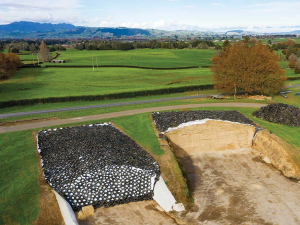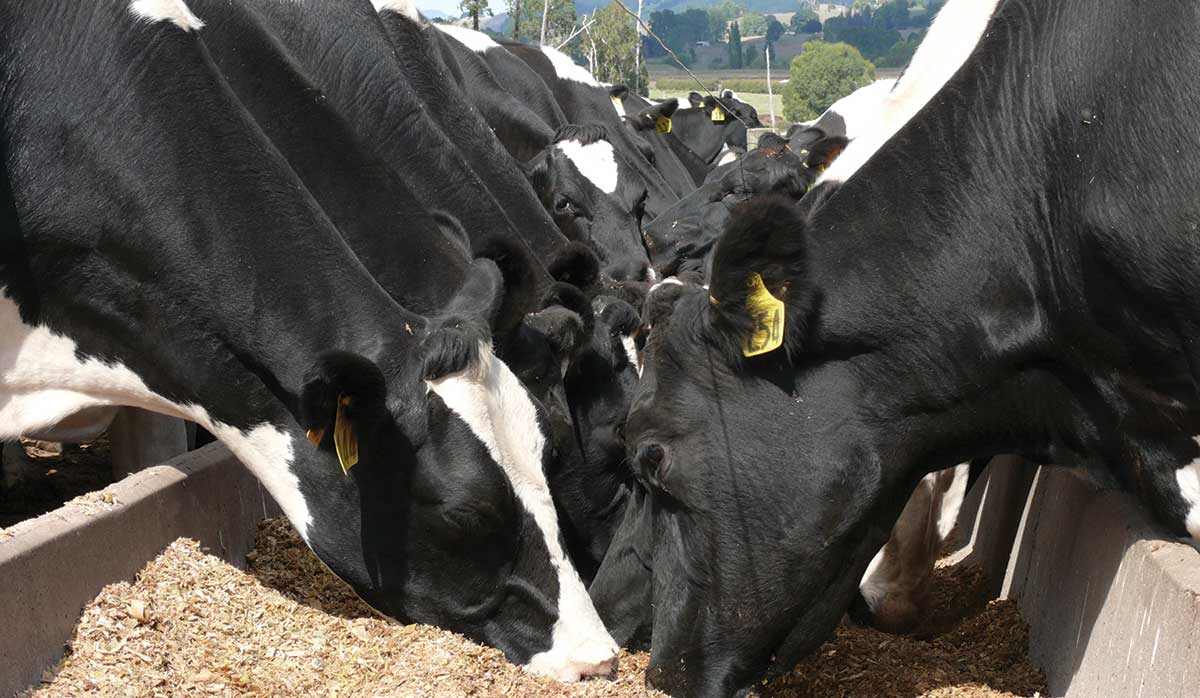Hitting heifer liveweight targets
Early December marks a key transition for many dairy farmers, as weaned replacement heifers head off-farm to grazing.
 Securing enough high-quality feed ahead of time is essential for maintaining production, managing costs, and reducing risk.
Securing enough high-quality feed ahead of time is essential for maintaining production, managing costs, and reducing risk.
OPINION: Few things are more stressful for dairy farmers than running out of feed when cows need it most.
Securing enough high-quality feed ahead of time is essential for maintaining production, managing costs, and reducing risk.
My colleagues and I regularly hear from farmers who want to maintain consistent milk production while keeping control of their feed costs. Rising costs of imported feed and variable pasture growth rates are driving more interest in homegrown supplementary feed options. Maize silage is one of the best farm system feeds available to farmers. Compared to other feeds, it can be stored when there is a pasture surplus or used when there is a pasture deficit.
Plan now to avoid feed shortages
This season's dry conditions have created feed shortages on some farms, forcing many to secure costly alternatives at short noice. Much like a savings account, a well-managed silage stack provides security against seasonal fluctuations. If payout projections for the coming season eventuate, demand for supplementary feed will put further pressure on both supply and price. There is little extra stored feed available at the moment, but planning now can help you manage feed supply and cost for next season.
Farmers considering growing maize silage should assess the full picture, including available paddocks nutrient balance and potential pasture forgone. Growing maize silage on-farm can be cost-effective, particularly when paddocks need reversal or excess nutrients need to be utilised. However, realistic yield estimates and costings are essential to ensure it is economically viable.
For those planning to buy in maize silage in autumn 2026, talk to a contract grower now. Locking in volume early may provide cost certainty and secure supply ahead of rising demand.
 |
|---|
|
Feeding maize silage supports better body condition at calving and extends days in milk. |
Why Maize Silage?
Maize silage offers several farm system benefits that make it an ideal supplementary feed:
Securing feed for the future
With uncertainty around weather patterns and market conditions, planning ahead is crucial to avoid future feed shortages. Whether growing maize silage on farm or securing supply from a contract grower, now is the time to act. Having maize silage in the stack ready to go whatever the season may throw at you makes good farming sense - don't get caught short.
If you need advice on planning for the season ahead, talk to your carm consultant or nutritionist or contact one of our Farm Systems Specialists, Matt Dalley or Wade Bell, at www.pioneer.co.nz
Wade Bell is Genetic Technologies farm systems manager. Contact him at This email address is being protected from spambots. You need JavaScript enabled to view it.
The Meat Industry Association (MIA) is once again looking for game-changing ideas for New Zealand's red meat processing and exporting sector.
Environment Southland is inviting feedback on two bylaws that play a critical role in safeguarding the region's waterways and ensuring the safety of the local community.
While the North Island is inundated with rain, Southland is facing receding water levels as warm weather and lack of rainfall continues.
Entries have opened for the 2026 Fieldays Innovation Awards.
Organisers are expecting another full field of 40 of the country’s top shearers for the popular Speed Shearing event at this year’s Southern Field Days at Waimumu.
The Southern Field Days Innovation Awards have a great record in picking winners and the winner of the 2024 event will be putting up a display to support the event at this year’s show.